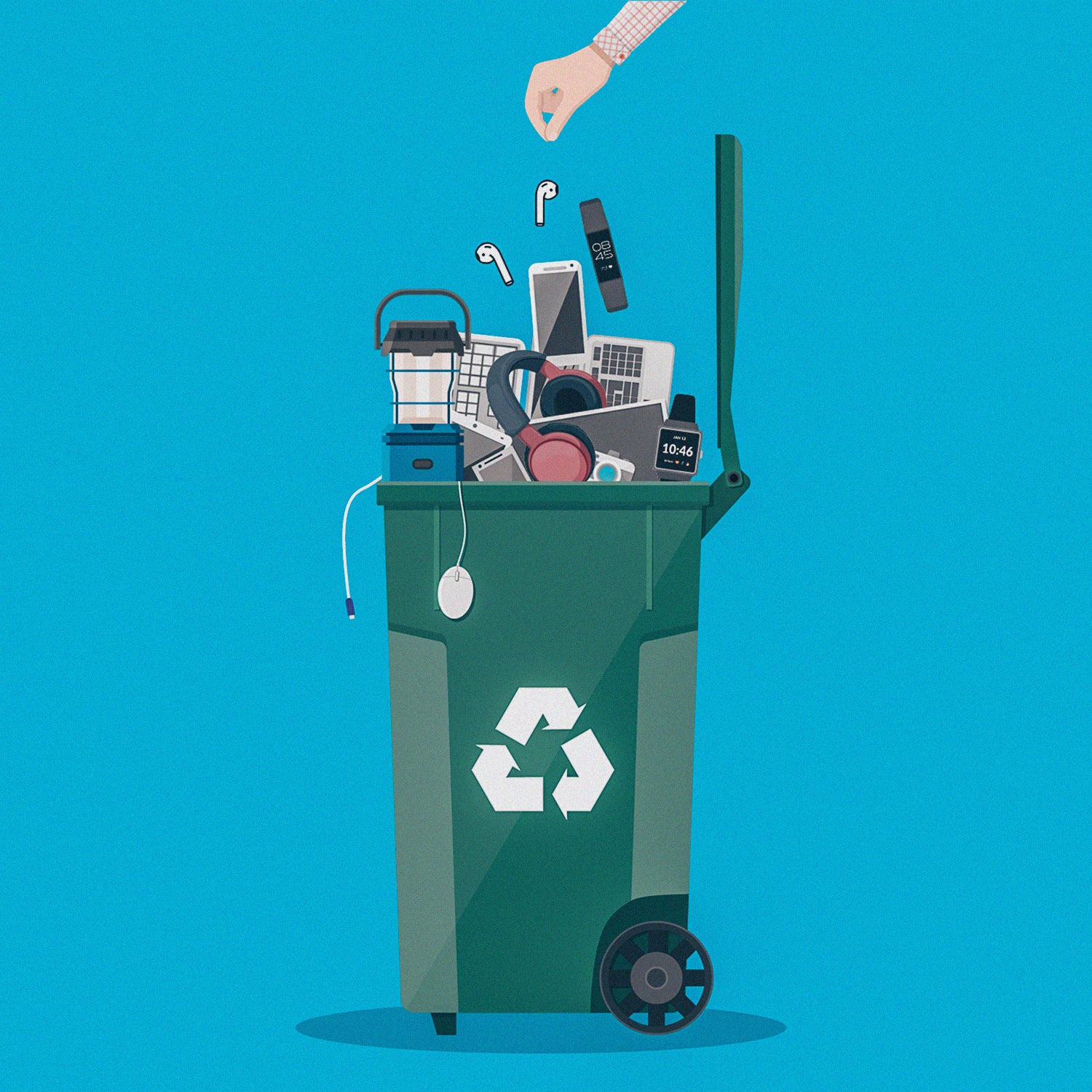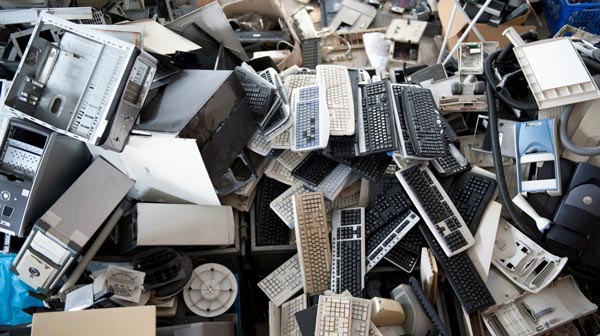Lasting Electronic Devices Disposal: Make Certain Conformity with R2 Certification
Lasting Electronic Devices Disposal: Make Certain Conformity with R2 Certification
Blog Article
Elevate Your E-Waste Administration With R2 Certification: an Extensive Review
In the world of accountable electronic waste monitoring, the relevance of executing effective approaches can not be overemphasized. As modern technology quickly develops, the demand for appropriate disposal and recycling of electronic tools has become significantly vital. One secret method to raise e-waste management techniques is by achieving R2 qualification. This accreditation stands as a trademark of excellence in the area, symbolizing adherence to strict criteria that make certain ecologically sound practices. By checking out the benefits and processes connected with R2 qualification, a deeper understanding of just how it can transform e-waste management strategies emerges, clarifying a path in the direction of sustainability and moral disposal practices.
Importance of E-Waste Monitoring

When e-waste is not taken care of properly, these toxic substances can leak into the environment, creating harm to wild animals and potentially getting in the food web, positioning risks to human health and wellness. Moreover, the incorrect disposal of e-waste adds to contamination and greenhouse gas exhausts, worsening climate change and environmental degradation.

Advantages of R2 Accreditation

To start with, R2 qualification enhances integrity by showcasing an organization's devotion to sustainable practices. It guarantees customers, partners, and stakeholders that the company abides by rigid criteria for e-waste administration - r2 certification. This credibility can result in enhanced trust and enhanced relationships with customers that prioritize environmental responsibility
Secondly, R2 qualification assists reduce threats connected with incorrect e-waste disposal. By following the strict guidelines set forth by the qualification, organizations can reduce the likelihood of information violations, environmental contamination, and legal repercussions. This positive strategy safeguards the business's credibility and reduces possible liabilities.
Lastly, R2 qualification demonstrates a commitment to environmental stewardship - r2 certification. By sensibly taking care of electronic waste via accredited processes, companies contribute to the conservation of sources, reduction of pollution, and promotion of a circular economy. This dedication not only profits the atmosphere however also straightens with evolving consumer expectations for lasting organization methods
R2 Accreditation Process Overview
Having actually established the advantages of R2 qualification in advertising trustworthiness, risk mitigation, and environmental stewardship, helpful site it is essential to now describe the detailed procedure associated with obtaining this accreditation. The R2 qualification process begins with a thorough testimonial of the organization's functional plans and treatments to make sure compliance with the R2 requirement. This initial evaluation is critical in determining any spaces that need to be attended to prior to proceeding further.
When the organization's techniques line up with the R2 conventional demands, an independent third-party auditor carries out an on-site audit to assess the implementation and performance of these methods. This audit consists of a thorough evaluation of documentation, meetings with staff, and physical assessments of facilities to validate compliance.
Complying with an effective audit, the organization gets a certification choice based on the auditor's searchings for. If approved, the company is provided R2 accreditation, showing its commitment to accountable e-waste monitoring. It is very important to note that keeping R2 accreditation calls for ongoing conformity with the criterion's requirements and regular audits to ensure continued adherence to ideal practices in e-waste recycling and disposal.
Secret Standards for R2 Compliance
A crucial aspect of accomplishing R2 conformity is ensuring that all electronic waste (e-waste) processing centers fulfill strict ecological and safety and security standards. To abide by R2 needs, companies must follow crucial standards that concentrate on responsible e-waste administration methods. These standards consist of executing a documented ecological, wellness, and safety and security monitoring system, guaranteeing the secure handling of data-containing devices, and carrying out detailed downstream due diligence to track the last destination of e-waste products.
In addition, R2 conformity demands the correct testing, refurbishment, and recycling of digital devices to expand its valuable life and lessen ecological impact. Facilities seeking R2 certification must also prioritize employee health and wellness by Get More Information giving essential training, individual safety tools, and a risk-free functioning atmosphere. Additionally, maintaining detailed documents of e-waste handling activities and on a regular basis going through audits by certified certifying bodies are vital components of showing continuous compliance with R2 standards.
Influences of Sustainable E-Waste Practices
The application of sustainable e-waste techniques based on R2 compliance not only guarantees environmental and safety and security requirements are met however likewise considerably impacts the total lifecycle of electronic items. By adhering to R2 standards, digital waste management procedures end up being more reliable, decreasing the ecological footprint of electronic products. Lasting e-waste methods facilitate the correct disposal of electronic components, ensuring that harmful materials are taken care of responsibly and do not finish up polluting the setting.
Furthermore, welcoming sustainable e-waste techniques promotes the round economy by assisting in the recovery and reuse of useful products from electronic items. This not just conserves priceless resources however additionally reduces the requirement for raw material extraction, lessening the environmental effect of electronic manufacturing. Additionally, sustainable e-waste techniques can add to task production in the recycling and repair industries, promoting financial growth while promoting ecological duty. In general, the adoption of lasting e-waste practices under R2 accreditation offers as an important action in the direction of accomplishing an extra eco sustainable electronics sector.
Verdict
To conclude, implementing proper e-waste management methods is crucial for ecological sustainability and source preservation. R2 accreditation plays a crucial function in making sure accountable handling and disposal of electronic waste. By adhering to the stringent requirements set forth by R2 standards, companies can not just lessen their environmental impact but additionally add to a much more lasting future for generations to find.
One secret method to boost e-waste monitoring techniques is by obtaining R2 accreditation. By exploring the processes and advantages linked with R2 qualification, a deeper understanding of how it can change e-waste administration methods arises, dropping light on a path in the direction of sustainability and ethical disposal next methods.
The R2 certification procedure begins with a complete evaluation of the company's functional policies and treatments to guarantee compliance with the R2 standard. If accepted, the organization is provided R2 certification, showing its commitment to liable e-waste management. Overall, the adoption of lasting e-waste methods under R2 certification serves as an important action towards attaining a more ecologically lasting electronics sector.
Report this page